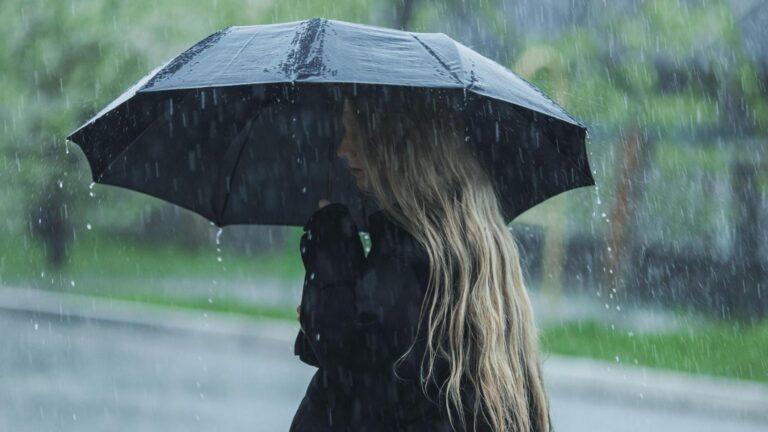When people in Russia search for “погода завтра” (weather tomorrow), they are usually preparing for a wide range of possibilities. Russia, being the largest country in the world, has an incredibly diverse climate that varies from region to region. Whether you are in Moscow, Saint Petersburg, Siberia, or the Far East, tomorrow’s weather can look completely different depending on where you are. This makes the phrase “погода завтра” not just a casual curiosity but an important part of daily life for millions of people across the country.
In this article, we will explore why the weather in Russia is so unique, how forecasting works, and why checking “погода завтра” has become a habit for Russians in both urban and rural settings.
The Importance of Checking “погода завтра” in Russia
In Russia, the weather is not just small talk—it is a part of survival and planning. From icy winters in Siberia to mild summers in the European part of the country, the variation is so large that no two regions experience the same conditions at the same time. For this reason, people constantly check “погода завтра” before making decisions about clothing, transportation, and even daily schedules.
- In Moscow and Saint Petersburg, winters are cold but more moderate compared to Siberia. Still, knowing tomorrow’s weather is essential, especially when snowstorms can disrupt traffic or delay public transportation.
- In Siberia, winters can be extremely harsh, with temperatures dropping below -40°C. Here, the forecast is crucial for safety. Checking “погода завтра” can mean the difference between being well-prepared or caught off guard by severe cold.
- In the Russian Far East, weather patterns are influenced by the Pacific Ocean, making forecasts unpredictable. Rain, storms, or sudden changes in temperature are common, so locals rely heavily on daily weather updates.
Why Russia’s Weather is so Unpredictable
The vast size of Russia means that the country stretches across 11 time zones and multiple climate zones. This geographical diversity creates sharp differences in weather conditions. A person searching “погода завтра” in Kaliningrad (western Russia) will see a forecast closer to Europe’s climate, while someone in Vladivostok (eastern Russia) might see a completely different picture influenced by the Pacific.
Several factors contribute to this unpredictability:
- Continental Climate – Much of Russia’s landmass is far from oceans, which means hot summers and freezing winters with little moderation.
- Arctic Influence – Northern winds bring icy air from the Arctic, making winters severe.
- Mountain Ranges – The Ural Mountains and other ranges block some air masses, creating regional weather variations.
- Size of the Country – Because Russia is so large, weather patterns often shift quickly and dramatically.
This is why the phrase “погода завтра” holds so much weight. Unlike smaller countries with relatively stable climates, Russia demands daily awareness of weather changes.
Weather and Russian Lifestyle
For Russians, weather forecasts shape everything from clothing to transportation. When someone looks up “погода завтра”, they might be deciding whether to wear a heavy fur coat or something lighter, whether to take public transport or drive, or even whether an outdoor event should be postponed.
- Fashion: Russia is famous for its winter clothing. People don’t just dress for style but for survival. A forecast showing -20°C tomorrow will definitely change wardrobe choices.
- Transportation: In winter, snow and ice create challenges for cars, trains, and even airplanes. Checking “погода завтра” allows drivers to prepare for slippery roads.
- Outdoor Activities: From ice skating in Red Square to summer picnics in the countryside, knowing tomorrow’s weather ensures plans go smoothly.
Modern Forecasting and Technology
Today, Russians have many ways to check “погода завтра”. Online platforms, smartphone apps, and television forecasts make it easy to stay informed. Websites like Gismeteo, Yandex Weather, and international sources like AccuWeather provide up-to-date reports with detailed breakdowns of temperature, precipitation, and wind.
The increasing use of smartphones has made weather forecasts more accessible. A simple search for “погода завтра” in a specific city provides instant results. Push notifications now alert people about sudden snowfalls, storms, or dangerous temperature drops.
Cultural Connection to Weather
Weather is also a popular topic in Russian culture. People often begin conversations by discussing the forecast. It’s common to hear:
- “Ты смотрел погода завтра?” (Did you check the weather tomorrow?)
- “Говорят, завтра будет снегопад.” (They say there will be snowfall tomorrow.)
This shows how deeply the concept of “погода завтра” is ingrained in everyday interactions.
Seasonal Examples of “погода завтра”
- Winter (December–February)
- In Moscow, tomorrow’s weather might include snow with temperatures around -10°C.
- In Siberia, “погода завтра” might mean preparing for -30°C and icy winds.
- Spring (March–May)
- Rapid changes occur. One day can be warm, and the next can bring snow or rain. People check “погода завтра” more often during this season to avoid surprises.
- Summer (June–August)
- Moscow enjoys mild summers with average temperatures of 20–25°C.
- The south of Russia, like Sochi, experiences warm and sunny days, attracting tourists. Checking “погода завтра” helps travelers plan outdoor trips.
- Autumn (September–November)
- Days become shorter, rain is frequent, and temperatures drop quickly. Forecasts for “погода завтра” help people transition from light jackets to heavy coats.
Why the Keyword “погода завтра” Matters
The keyword “погода завтра” is not just a search term—it reflects the practical need of Russians to adapt to one of the world’s most extreme and varied climates. From planning a simple walk in Moscow to preparing for survival in Siberia, tomorrow’s weather always matters.
As technology evolves, forecasts are becoming more accurate, but the unpredictability of Russia’s vast geography means that people will never stop checking “погода завтра” as part of their daily routine.
Conclusion
In Russia, weather is more than just numbers on a forecast—it is a part of culture, planning, and safety. The phrase “погода завтра” symbolizes preparedness in a land where tomorrow’s weather can dramatically alter daily life. Whether you are a local resident or a traveler exploring the beauty of Russia, checking “погода завтра” is always the smart choice.















